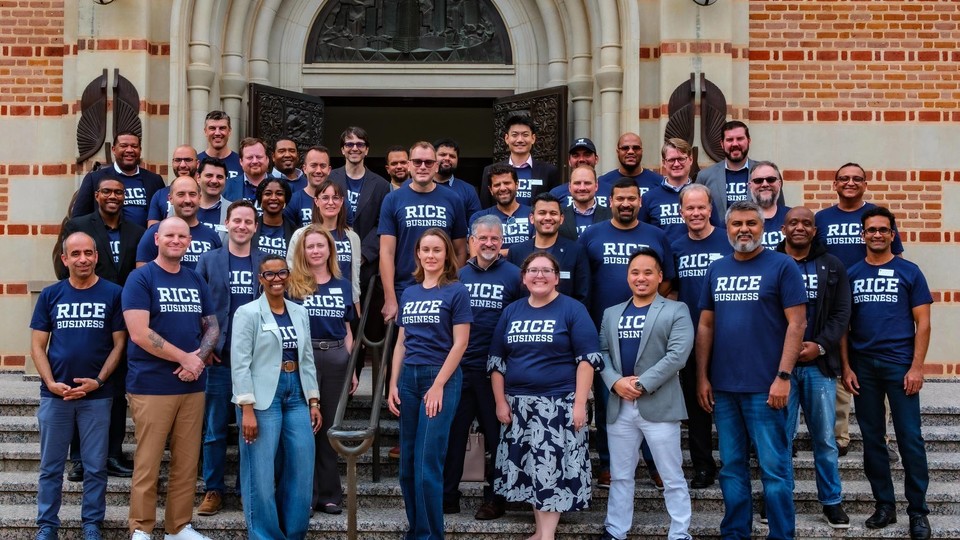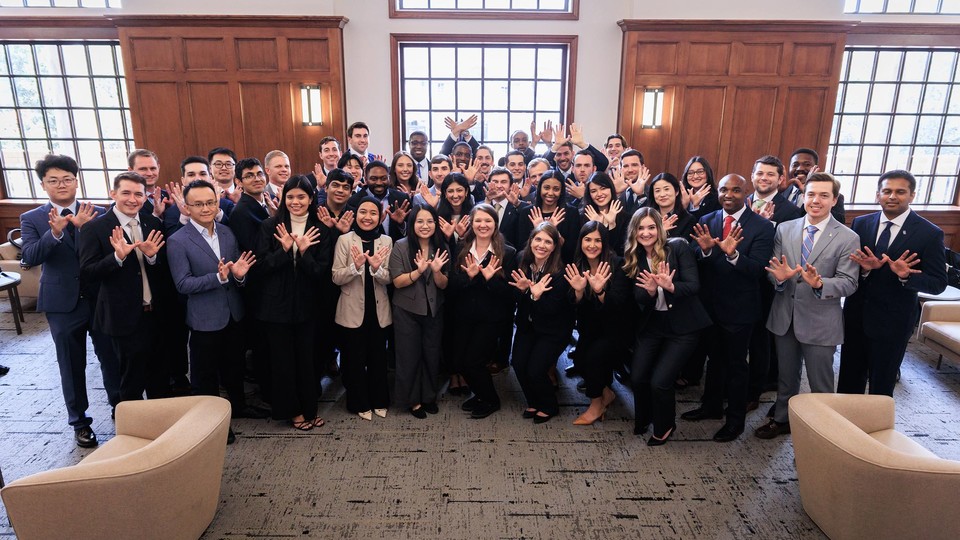Hurricane season coming: Experts available from Rice
With the Atlantic hurricane season beginning June 1, during the global coronavirus pandemic, Rice University experts are available to discuss a wide variety of storm-related topics with reporters. Terry Hemeyer, adjunct professor in Rice’s Jones Graduate School of Business, can discuss crisis management and communication challenges that communities, the public, corporations and government entities face in times of disaster.


With the Atlantic hurricane season beginning June 1, during the global coronavirus pandemic, Rice University experts are available to discuss a wide variety of storm-related topics with reporters.

The first advisory has already been issued by the National Hurricane Center, which notes an area of low pressure is expected to develop a couple of hundred miles northeast of the Bahamas by this weekend.
Rice’s hurricane experts, by topic area, include:
Hurricane and flooding risks and impact
Phil Bedient, Rice’s Herman Brown Professor of Engineering and director of the Severe Storm Prediction, Education and Evacuation from Disasters (SSPEED) Center, can discuss flooding issues that arise from tropical depressions, hurricanes and other severe storms. Bedient has studied Hurricane Harvey’s unprecedented flooding and massive 2015 and 2016 floods in Houston and Louisiana. He can speak to the effects of urban development practices on these and other floods.
Jim Blackburn is co-director of Rice’s SSPEED Center, director of Rice’s undergraduate minor in energy and water sustainability and a professor in the practice of environmental law in Rice’s Department of Civil and Environmental Engineering. He can speak about how widespread property development has impacted storm and flood risks. Blackburn can also address the environmental and economic sustainability of regional hurricane protection proposals, including structural options such as dikes, levees and gates in and around Galveston Bay and nonstructural alternatives that aim to use coastal wetlands and prairies as natural storm barriers.
Energy industry
Ken Medlock, director of the Center for Energy Studies at Rice’s Baker Institute for Public Policy, can address the potential impact on gasoline prices and exports of oil, refined products and liquefied natural gas (LNG) when infrastructure is affected for an extended time.
Rachel Meidl, fellow in energy and environment at the Baker Institute, can discuss how to ensure energy infrastructure resilience when dealing with catastrophic weather events like hurricanes.
Mark Finley, fellow in energy and global oil at the Baker Institute, can discuss the intersections of energy, economics and public policy during times of severe weather.
Houston, Texas and urban issues
Stephen Klineberg, founding director of Rice’s Kinder Institute for Urban Research and professor emeritus of sociology, can discuss Kinder Houston Area Survey data on the persistence of concerns about flooding among area residents, even 2 1/2 years after Harvey.
Katherine Ensor, the Noah Harding Professor of Statistics in Rice’s Brown School of Engineering, can discuss the Texas Flood Registry (formerly known as the Hurricane Harvey Registry), which is committed to better understanding the health and housing effects of major natural disasters, and the recently launched COVID-19 Registry, which provides real-time information on the spread of COVID-19 in the region, who is being affected and how.
Corporate response and leadership
Tom Kolditz, director of Rice’s Doerr Institute for New Leaders, can discuss crisis leadership strategies with examples taken from hurricanes Katrina and Sandy; he uses the two events in his presentations, and they are included in his book “In Extremis Leadership: Leading as If Your Life Depended on It.” The Doerr Institute is the most comprehensive leader-development initiative at any top 20 university.
Terry Hemeyer, adjunct professor in Rice’s Jones Graduate School of Business, can discuss crisis management and communication challenges that communities, the public, corporations and government entities face in times of disaster. Pierpont, a communications firm where Hemeyer serves as executive counsel, featured him in a post titled “Crisis Management: Controlling the Chaos.”
Politics
Mark Jones, professor of political science and fellow in political science at Rice’s Baker Institute for Public Policy, can discuss government reactions to storms and the politics in play as well as public opinion on policies related to hurricanes and flooding.
Bob Stein, the Lena Gohlman Fox Professor of Political Science, can talk about local government reaction to storms and the politics involved in decision-making.
Psychology
Danielle King, an assistant professor of industrial and organizational psychology in Rice’s School of Social Sciences, is an expert in the study of employee and organizational resilience. She can discuss resilience in the face of catastrophic events such as hurricanes. A New Orleans native who lost but subsequently helped to adapt her family business after Hurricane Katrina, she seeks ways to create resilience in individuals and groups at work.
To schedule an interview with one of the experts or for more information, contact Jeff Falk, director of national media relations at Rice, at jfalk@rice.edu or 713-348-6775.
Follow Rice News and Media Relations via Twitter @RiceUNews.
This news release can be found online at www.news.rice.edu.
Houston’s Economy Is Diversified Enough To Handle The Latest Oil Bust…Right?
Peter Rodriguez, dean of Rice University’s Jones Graduate School of Business, does not believe that Houston is facing the end of the oil economy. But he does agree that this latest bust is different from previous cycles.
Uncharted Territory
Should you co-create a product with your supplier?


Based on research by Amit Pazgal, Dinah Cohen-Vernik and Niladri B. Syam
Should You Co-Create A Product With Your Supplier?
- When upstream suppliers and downstream firms create products together, the result can be better suited for consumer needs.
- Downsteam firms often worry that their innovations may be copied by competitors at a lower price if those competitors work with the same upstream supplier.
- New research shows that in many cases, both upstream and downstream members make higher profits when they co-create.
There’s a special cachet to being an innovator — but there are also serious costs. Say you’re the owner of a camping supply store, and you’ve come up with a carpet-soft, totally waterproof flooring for tents. Your instinct is to build it together with your favorite tent supplier, a family-run company that makes the best shelters in your store. The problem: They also supply your arch-rival. Do you collaborate, knowing the supplier may sell the luxurious new tents to your nemesis? Or do you leave your idea unused?
Rice Business professor Amit Pazgal joined colleagues Dinah Cohen-Vernik, who conducted her research while at Rice but is currently a professor at the University of Houston Downtown, and Niladri B. Syam of the University of Missouri, to sort out the risks and benefits. In past work about co-creation, researchers focused on the supplier-side of the equation. Cohen-Vernik, Pazgal and Syam’s innovation was to study co-creation from the downstream firm’s point of view, carefully sorting the competitive issues involved.
On its face, it might seem logical to keep your idea off the market rather than share it. What’s the point of your R&D if the competition profits from it? Even worse, they could actually undercut your price, since they didn’t have to sink resources into developing anything.
These concerns are legitimate, Cohen-Vernik, Pazgal and Syam advise. Surprisingly, though, the researchers discovered that in many cases, everyone involved enjoyed higher profits when co-creating together. That’s a striking contrast to situations in which upstream firms design products alone.
Using a variety of models, Cohen-Vernik, Pazgal and Syam first examined a “base case scenario” where one top-level supplier developed a new product and sold it to two downstream resale firms. Next they looked at scenarios in which those downstream firms engaged with the upstream supplier in three different ways: neither firm working with the supplier, both firms working together and also with the supplier and one firm working with the supplier while the other firm simply reaps the benefits of selling the upgraded product.
Through this analysis, the researchers were able to model the effort expended by both the supplier and the downstream firms, as well as product fit and profit. Their conclusion: As with any business decision, a rigorous competitive analysis is critical before leaping into a co-creating project. Above all, if you and your competitor are in an extremely price-sensitive market, co-creating might not do you much good. Your work might indeed give your rival a newly improved product — at a lower price.
If you’re the supplier, meanwhile, it’s important that the downstream firm approaching you with a plan is only low or moderately price-sensitive. Otherwise, if your collaborator senses its rival gaining on them, your firm could end up doing most of the work in the race to stay ahead. One of the best ways to dodge such surprises, the researchers say, is to limit the number of firms that you co-create with.
So, to share or not to share your discovery for the perfect glamping upgrade? Like for any adventurer, the key is to scan the horizon before setting out. If your idea is unique; your business is not overly price-sensitive; or you’re confident your rival isn’t courting the same supplier, pooling intellectual and economic resources can be lucrative.
Dare to innovate, in other words. Run with the resources that only collaboration can bring. Just check weather conditions — not only your own, but those of the competition before you head for uncharted territory.
Amit Pazgal is Friedkin Chair in Management and Professor of Marketing and Operations Management at Jones Graduate School of Business at Rice University.
To learn more, please see: Cohen-Vernik, D., Pazgal, A. & Syam, N. (2019). Competing with co-created products. International Journal of Research in Marketing, 36(1), 63-82.
Never Miss A Story
Keep Exploring
Meet The ‘MomBAs’ Of The Covid Class Of 2020
If anyone could be pardoned for not having the time or energy to do more — to “go the extra mile” — it’s Mercede Barnes. The mother of a middle-schooler and an entrepreneur with her own business, Barnes is also a graduating MBA student at Rice University’s Jones Graduate School of Business.
Business has reopened in Texas, but the economy won’t be back anytime soon, experts say
“We probably have to let go of energy as being the No. 1 industry in the long run,” Peter Rodriguez, dean of the Jesse H. Jones Graduate School of Business at Rice University, said in an interview. “That primacy is no longer in the cards for Texas.”
Game Changer: How an MBA Can Put You Ahead
Learn how getting an MBA from Rice Business in Houston can boost your career, expand your network, and help you gain valuable skills for long-term growth.


Updated from original post that was published on 05/07/2020.
Rice Business Equips You To Excel In 21st Century Business
We're living in extraordinary times right now — times that demand thoughtfulness, strength, and maybe above all, preparedness. An MBA can be a powerful way to meet this demand. In a strong economy, an MBA readies you for top roles in your field. But in an economy like the present one — with industries transforming before our eyes — an MBA can help you flourish in opportunities that previously didn’t exist.
Unlike stock portfolios or restaurants, a business education that's strong on fundamentals such as finance and accounting can’t be drained or shuttered by outside events. It's a long-term asset — and a valuable one, as Rice Business professor James Weston shows in a popular video. Weston calculated, the ROI on a business degree comes out to 20 percent.
Quality in Addition to Quantity
A business school degree also equips graduates with less quantifiable assets:
- Leadership skills
- Business judgment
- Mentor relationships
- Experiential learning in all kinds of new fields.
For many employers, in fact, the credential itself is a kind of short-hand for a high performer.
"There's nothing about getting an MBA that doesn't require initiative from that point all the way through your career," Elissa Sangster, CEO of the Forté Foundation, told U.S. News and World Report. The nonprofit Forte Foundation, with which Rice Business is a partner, focuses on encouraging women to attend MBA programs and pursue ambitious career goals.
In particular, Sangster said, an MBA can clear a path to hard- to -access industries such as Silicon Valley or Wall Street. It can also be helpful for candidates who want to work with major employers outside their own communities.
Building Connection
There's another reason to invest in an MBA: the wide-ranging, ambitious network of students and alumni that will now be your peers. In business, just as in other fields, job boards and public announcements only account for a fraction of important hires. The quality and reach of your personal network will likely offer you far more opportunities. At Rice Business, 71 percent of graduates’ jobs were generated by the school community (2024 Full-Time MBA stats).
In fact, most graduates find, some of the most educational business school experiences happen after graduation. Top MBA programs take their alumni seriously, inviting them to collaborate, support recent graduates – and keep acquiring business skills as permanent members of the school community.
“Business school emphasizes working in groups, and MBA students often learn as much from their peers as they do from faculty,” executive coach Ed Batista pointed out in Harvard Business Review. “Those same people will become your fellow alumni, and access to that network is one of the most valuable benefits an MBA program can offer.”
Interested in Rice Business?
Looking Ahead: The Future of Business School
Business schools themselves have changed. Top business schools have been changing their models, adding more leadership and critical thinking courses to core subjects like finance, accounting and marketing. According to the Princeton Review, 71.1% of MBA applicants surveyed were aiming for senior leadership positions, and 94.4% were considering changing industries.
Rice Business alumna Marjorie Ma was one such candidate. Working as a consultant in China for Deloitte, she enrolled in the fulltime class of 2012 to prepare for a different type of corporate job. “I wanted to do an MBA program to enrich my experience,” she said. It worked. After graduating from Rice Business, Ma pivoted from both her job title and her firm itself, and became vice president of product management and market intelligence at AIG.
How Rice Business Sets Up Students For Success
With its small classes and supportive culture, Rice Business is designed to help that kind of career change. You can see the results in recent class profiles. Financial services led the way for the Class of 2024, with 27% of graduates securing roles in the sector, followed by consulting (20%) and energy (18%). Rice MBAs who took jobs in the finance sector earned an average of $176K. Overall, members of the class of 2024 reported an average base salary of $150K.
To ensure that graduates have these kinds of choices throughout their careers, a top business school invests enormous attention on both its curriculum — and each student as an individual, Rice Business Dean Peter Rodriguez said.
“In the past, we thought a lot about deep quantitative skills and core competencies. All that is still very necessary,” Rodriguez said. “But today you also need enhanced skills around being a leader. Those skills will help you make great decisions, express wisdom, show empathy and lead organizations through tough times. They will help you give purpose to work.”
You May Also Like
In oil shock Texas banks face test
The economic hit to oil in regions from Houston to West Texas to South Texas means not just failing energy companies but laid off workers not able to make mortgage payments, restaurants and shops going out of business and motels with empty rooms, said James Weston, a finance professor at Rice University.
Sick-leave policies have changed for employers, but experts say they're tricky to navigate
“We’re getting a lot of questions from employers about how to make sure people are legitimately allowed to take paid sick leave and then what to do to make sure people legitimately have medical issues,” Larry Stuart, an employment lawyer in the Houston-based law firm Stuart PC and an adjunct professor at the Jones Graduate School of Business at Rice University, tells Yahoo Life.
Rice creates entrepreneurship minor, Houston tech jobs grow, and more innovation news
"Entrepreneurship and the creation of new businesses and industries are critical to Houston and Texas' future prosperity and quality of life," says Yael Hochberg, Rice finance professor who leads Lilie, in a release. "Rice students continuously seek to lead change and build organizations that can have real impact on our world."
A Spoonful Of Sugar
Why adding threats to your rules can backfire


Why adding threats to your rules can backfire
It’s one of our first human experiences: the smell of something sweet in the air followed by the overwhelming desire to gobble it. Imagine now that you’re six years old, and your dad is taking warm chocolate chip cookies out of the oven. Not one nibble before dinner, he says, otherwise you’ll lose your appetite. Then, before dashing out for a meeting, he gives a warning: “If even one cookie is missing, no TV for a week.”
What will you do? Dutifully wait? Or grab a cookie regardless of the threats?
Rice Business professor Marlon Mooijman and colleagues Wilco W. van Dijk and Eric van Dijk of Leiden University along with Naomi Ellemers of Utrecht University studied 883 people to understand the links between deterrence, threats and rule following. In layman’s terms, they wanted to see how policies and punishments affected the choice to steal cookies. To reach their conclusions, they conducted a series of games in which participants reported or hid taxable income depending on whether they were threatened with fines, fined with an explanation, or fined with no explanation.
With adults as with children, the researchers found, threats and punishments often backfire. This is because they signal distrust by the authorities of the very people they're supposed to control. Often, the response to that distrust is rebellion. The more perceived distrust people feel, the less likely they are to follow the rules.
So if your dad simply tells you to lay off the cookies – that is, deterrence but no justification – you won’t assume he distrusts you. If, on the other hand, he says, “Don’t eat those cookies before dinner because you’ll spoil your appetite” – offering justification – or “If one cookie’s missing, no TV for a week,” you’re inclined to think he doesn’t trust you. Human nature being what it is, that feeling may send you straight to the cookie sheet as soon as he turns his back.
The perception has become a self-fulfilling prophecy. If your dad doesn’t have faith in you, who cares about disappointing him?
In general, the researchers discovered, justifications and threats of punishment leave a bad taste. Instead, we respond better to rules with no justification.
At the same time, the authority who is making the rules is important. What happens when an older sister or babysitter lays down the law? Authorities who want subordinates or constituents to follow their rules, Mooijman and his colleagues found, need to be seen as legitimate: that is, possessing the right to govern and to have others comply with their rules.
In our family scenario, this might mean that once your mother gets involved, the fun and games are over. Because you believe she’s legit, you’re more likely to follow her rules. Your older sister might have rank because she is older, but she’s not a parent, and you know she’s likely to sneak a cookie or two along with you.
Even so, you might be more prone to listen to her than to the babysitter. Your parents don’t know that the babysitter spends most of her time on the phone with her boyfriend while watching reality TV and periodically raiding the fridge. You have little respect for her; as an authority, she is illegitimate. If she instructs you not to eat cookies, they’re as good as gone.
Our first contacts with authority, legitimacy and deterrence usually occur at home. But the same principles apply in adult organizations, from education and penal correctional systems to finance, judicial and legislative bodies to the corporate world. Regardless of industry, if you want subordinates’ to keep their hands out of the cookie jar, don’t try to justify your rules. Just tell them what not to do.
Emphasize, though, that these rules are spelled out for wrongdoers, not the conscientious individuals who might hear them as well. Finally, sprinkle a little sugar on top. For best results, always sweeten new rules and procedures with assurances of trust.
Marlon Mooijman is an assistant professor in the management department of organization behavior at the Jones Graduate School of Business at Rice University.
To learn more, please see: Mooijman, M., van Dijk, W., van Dijk, E. & Ellemers, N. (2016). On Sanction-Goal Justifications: How and Why Deterrence Justifications Undermine Rule Compliance. Journal of Personality and Social Psychology,112(4),577-588.
See more Rice Business Wisdom Articles
Never Miss A Story
<!-- Begin MailChimp Signup Form -->
<div id="mc_embed_signup">
<form action="https://rice.us1.list-manage.com/subscribe/post?u=fef5c320a386e6b8238b3eda6&id=5389b60824" class="validate" id="mc-embedded-subscribe-form" method="post" name="mc-embedded-subscribe-form" novalidate="" target="_blank">
<div id="mc_embed_signup_scroll">
<div class="indicates-required">indicates required</div>
<div class="mc-field-group"><label for="mce-EMAIL">Email Address </label> <input class="required email" id="mce-EMAIL" name="EMAIL" type="email" value="" /></div>
<div class="mc-field-group"><label for="mce-FNAME">First Name <span class="asterisk">*</span> </label> <input class="required fname" id="mce-FNAME" name="FNAME" type="text" value="" /></div>
<div class="mc-field-group"><label for="mce-LNAME">Last Name </label> <input id="mce-LNAME" name="LNAME" type="text" value="" /></div>
<div class="mc-field-group"><label for="mce-MMERGE7">How did you hear about us? </label> <input id="mce-MMERGE7" name="MMERGE7" type="text" value="" /></div>
<div class="clear" id="mce-responses">
<div class="response" id="mce-error-response" style="display:none"> </div>
<div class="response" id="mce-success-response" style="display:none"> </div>
</div>
<!-- real people should not fill this in and expect good things - do not remove this or risk form bot signups--></div>
</form>
</div>








